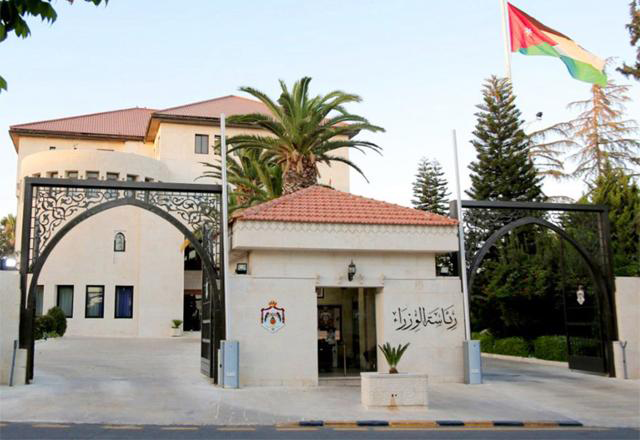You are here
New public-private partnership law requires transparency from both sides, say experts
By Mays Ibrahim Mustafa - Jul 03,2023 - Last updated at Jul 03,2023

A view of the Prime Ministry building (Petra file photo)
AMMAN — Robust legal and regulatory frameworks as well as transparent procurement processes are the key to successful public-private partnerships, according to economists.
The Cabinet on Sunday approved the public-private partnership projects bill for 2023, the Jordan News Agency, Petra, reported.
The bill aims to create an investment environment conducive to building partnerships with the private sector in order to benefit from private sector expertise in establishing infrastructural and public utility projects. It also aims to create an effective institutional framework and outline clear, simple and transparent procedures, according to Petra.
Economic expert Husam Ayesh noted that certain steps should accompany this bill to help gradually increase the role of the private sector in promoting economic growth.
This includes eliminating bureaucratic obstacles and introducing taxation privileges for private institutions when implementing costly projects with job-generation potential, especially in remote or underserved areas, he told The Jordan Times.
Ensuring the success of this partnership also requires the government to maintain transparency, prevent monopolies and maintain open channels of communication with the private sector, in addition to introducing legal mechanisms for dealing with any conflicts that may arise between both parties, added Ayesh.
He pointed out that the private sector’s role is “crucial” in the realisation of the Economic Modernisation Vision, which will require around JD41 million in investments and financing in order to achieve its goal of creating one million jobs for Jordanians in the next decade.
Effective private-sector participation can help alleviate governmental costs, which in turn will help reduce budget deficits and reliance on loans, he continued.
Director of the Phenix Centre for Economics and Informatics Studies (PCEIS) Ahmad Awad said that it is necessary to ensure that this law, which includes an article related to “providing public services”, doesn’t expand the role of the private sector into areas that are the responsibility of the public sector, such as social protection, healthcare, education and security.
The new law also requires introducing “binding standards” for private companies that intend to enter partnerships with the public sector, especially those related to the standards of governance in project management, including transparency, accountability and information disclosure, he told The Jordan Times.
Awad suggested including articles that prioritise national private companies over private foreign entities for projects implemented under the law.
Engaging civil society organisations in public-private projects is also essential to delivering a positive and inclusive impact, Awad added.
Related Articles
AMMAN — The Lower House on Sunday began its deliberations over the draft law concerning public-private sector partnership.The draft law stip
The Senate on Wednesday returned the draft laws on public-private partnership and investment to the Lower House.
AMMAN — The Senate on Tuesday approved draft amendments to the Traffic Law for the year 2023 and the public-private partnership (PPP) draft















